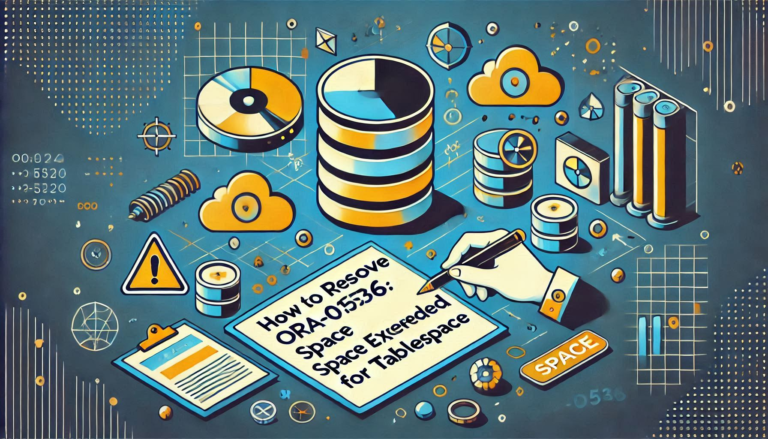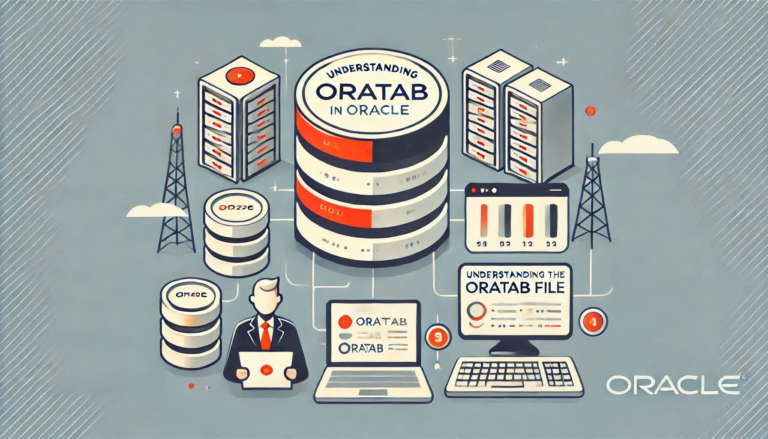The Ultimate Guide to Oracle DBA: Roles, Types, and Responsibilities
In the world of enterprise technology, Oracle Database Administrators (DBAs) are the unsung heroes ensuring data is secure, available, and optimized for business operations. If you’re curious about what an Oracle DBA does, this guide will walk you through everything you need to know: the role, its types, and the responsibilities that make it an indispensable profession.
What is an Oracle DBA?
An Oracle DBA (Database Administrator) is a specialist responsible for managing and maintaining Oracle Database systems. Oracle DBAs ensure databases are available, performant, and secure, supporting applications critical to an organization’s operations.
While the primary focus is on Oracle Database, the role often involves strategic planning, troubleshooting, and working closely with development and operations teams to ensure smooth database functionality.
Types of Oracle DBAs
Oracle DBAs can have specialized roles depending on the organization’s size and needs. Let’s explore the different types of DBAs and their responsibilities:
1. System DBA
A System DBA focuses on the database infrastructure and system-level operations.
Key Responsibilities:
- Installing, configuring, and upgrading Oracle Database software.
- Managing operating system-level issues affecting the database.
- Handling database server hardware configurations.
- Ensuring high availability by configuring clustering and failover mechanisms (e.g., Oracle RAC).
- Monitoring server performance and resource usage.
2. Application DBA
An Application DBA works closely with application development teams to ensure database compatibility and performance.
Key Responsibilities:
- Supporting application-specific database needs, including schema design.
- Optimizing SQL queries written by developers.
- Managing stored procedures, triggers, and views.
- Ensuring seamless interaction between applications and the database.
- Coordinating database patches with application upgrades.
3. Development DBA
A Development DBA focuses on database design and development, ensuring new projects meet database standards and performance expectations.
Key Responsibilities:
- Designing database schemas and structures for new projects.
- Collaborating with developers to implement database-driven features.
- Enforcing data integrity with constraints and triggers.
- Creating and testing prototypes for database-driven solutions.
- Advising on database design best practices.
4. Performance Tuning DBA
Performance Tuning DBAs specialize in optimizing database performance to meet business demands.
Key Responsibilities:
- Identifying and resolving database bottlenecks.
- Tuning SQL queries for faster execution.
- Analyzing system performance metrics and logs.
- Using tools like Oracle AWR (Automatic Workload Repository) and ADDM (Automatic Database Diagnostic Monitor).
- Implementing indexing strategies for optimal query performance.
5. Security DBA
Security DBAs focus on protecting the database from internal and external threats.
Key Responsibilities:
- Setting up user authentication and authorization mechanisms.
- Implementing encryption for sensitive data.
- Monitoring database for suspicious activities or breaches.
- Conducting regular security audits and ensuring compliance with regulations like GDPR or HIPAA.
- Applying critical security patches promptly.
6. Backup and Recovery DBA
This DBA ensures the database can be restored quickly in case of data loss or disaster.
Key Responsibilities:
- Configuring and managing Oracle Recovery Manager (RMAN).
- Scheduling and monitoring backups (full, incremental, and transaction logs).
- Testing disaster recovery plans to ensure data can be restored.
- Managing Oracle Data Guard for replication and high availability.
- Performing point-in-time recovery during emergencies.
General Responsibilities of an Oracle DBA
Across all types, there are some core responsibilities that every Oracle DBA handles:
- Database Creation and Maintenance: Setting up new databases and ensuring they run optimally.
- Monitoring and Troubleshooting: Continuously monitoring database health and resolving any issues.
- Capacity Planning: Predicting future storage and performance needs and planning upgrades accordingly.
- Patching and Upgrades: Keeping Oracle Database software up-to-date without disrupting operations.
- Documentation: Maintaining clear records of database configurations, processes, and troubleshooting steps.
Skills Every Oracle DBA Needs
To excel as an Oracle DBA, professionals need both technical expertise and problem-solving skills. Key skills include:
- Proficiency in Oracle SQL and PL/SQL.
- Knowledge of Oracle-specific tools: RMAN, Oracle Enterprise Manager, and AWR.
- Understanding of operating systems: Linux, Unix, and Windows.
- Problem-solving mindset: Quickly identifying and resolving issues.
- Strong communication skills: Collaborating with developers, operations teams, and business stakeholders.
Why Oracle DBAs are Essential
In organizations that rely on Oracle Databases for critical operations, DBAs are crucial for:
- Ensuring the availability of data for business continuity.
- Securing sensitive customer and business information.
- Optimizing performance to meet growing user demands.
- Supporting application developers to build efficient systems.
Without a skilled Oracle DBA, databases would risk downtime, inefficiency, or even data breaches—consequences that can cost businesses millions.
Conclusion
The role of an Oracle DBA is as dynamic as it is essential. From maintaining performance to securing sensitive data, Oracle DBAs are the backbone of database-driven applications. Whether you’re aspiring to become one or looking to deepen your understanding, this profession promises to be both challenging and rewarding.
Stay tuned as we dive deeper into the tools, techniques, and technologies Oracle DBAs use to stay ahead in an ever-changing digital landscape.


